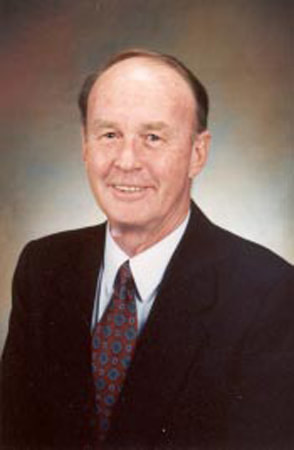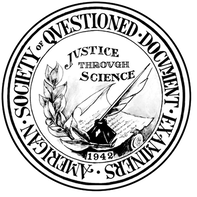Ronald M. Dick was the 23rd President of the American Society of Questioned Document Examiners. |
|
|
Ronald "Ron" Dick was born in 1930 in Moores Mills, in the province of New Brunswick, Canada. He served briefly in the Canadian Navy before joining the Royal Canadian Mounted Police in 1949.
In 1959, he began training as a questioned document examiner with the Florida Sheriffs Bureau in Tallahassee, Florida. From 1965 until 1969, he worked in private practice. In 1969, he began working as an document examiner for the Central Intelligence Agency and two years later he became an examiner for the U.S. Secret Service. |
|
In 1978, he took a position with the Florida Department of Law Enforcement. In 1984, he left government service and returned to private practice in Tampa and Miami.
Prior to his election as President, Mr. Dick served the Society as the Secretary, Director, and Chairman of the Membership Committee. He was a Fellow of the American Academy of Forensic Sciences (AAFS) and Chairman of the AAFS Questioned Document Section. He was a Diplomate of the American Board of Forensic Document Examiners and served as a Director of the board for several years. He was a Charter Member of the Southeastern Association of Forensic Document Examiners (SAFDE). The SAFDE Achievement Award is named in his honor. Dick was known as a gifted teacher. He served as an instructor with the U.S. Secret Service Questioned Document Course in Washington, D.C. and later at the Federal Law Enforcement Training Center. He conducted seminars at Georgetown University, Valencia Community College, the Alabama Training Institute, and for the Utah Peace Officers Standard and Training Academy. Mr. Dick was the author of numerous published articles and professional papers. He is well known for his work with dichroic filters. In 1970, his article, "A Comparative Analysis of Dichroic Filter Viewing, Reflected Infrared and Infrared Luminescence Applied to Ink Differentiation," was published in the Journal of Forensic Sciences. Mr. Dick passed away in 2001. Derived in part from an article by Linda Hart in the May 2001 issue of The Society News. |

